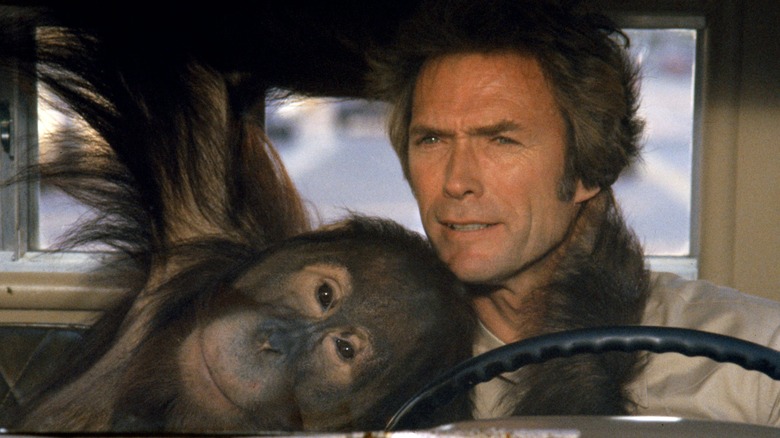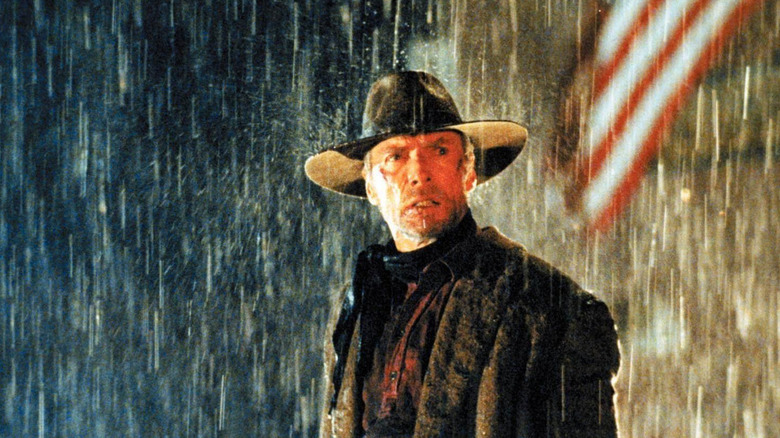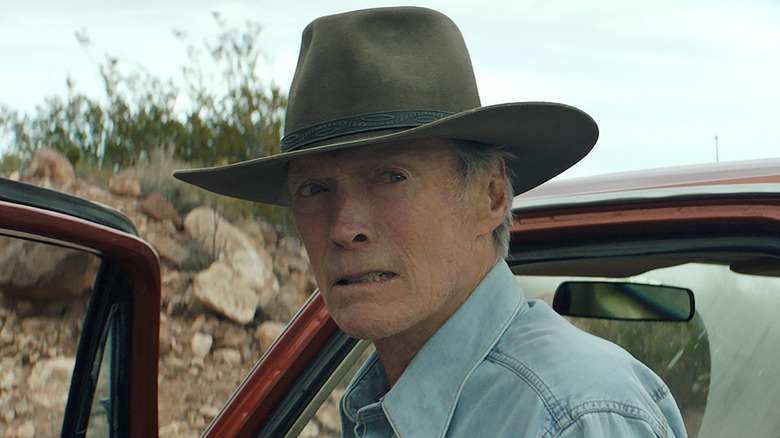Clint Eastwood Doesn't Do Much Thinking When It Comes To Choosing Films
On paper, Clint Eastwood seems to have enjoyed a well plotted out career. In the early 1960s, he made himself known to American television viewers via his role as Rowdy Yates on "Rawhide." From there, he segued to the newfangled Spaghetti Westerns of Sergio Leone as the laconic "Man with No Name" in the "Dollars Trilogy." As conventional Westerns faded out of fashion, Eastwood made violent, anti-mythic oaters like "Hang 'Em High" and "The Outlaw Josey Wales," while adopting the persona of Dirty Harry Callahan in a series of cop flicks that both capitalized on and tweaked the country's law-and-order fervor. Then, after a few stumbles in the late 1980s, Eastwood went full-on revisionist with "Unforgiven," at which point he became a perennial Oscar darling.
Amazingly, Eastwood is still plugging away at 92. That kind of career longevity isn't just rare, it's just about unprecedented. Only Portuguese filmmaker Manoel de Oliveira, whose career stretched from 1931 to 2012 (he completed his final movie at the age of 103), can lay claim to a longer run. How did Eastwood do it? He didn't overthink it.
When his gut speaks, Clint listens
The secret to Eastwood's enduring success is simple: go with your gut. As he told Esquire in 2016, "[Unforgiven] was a turning point, and I knew it when I read the story. I believe in my gut. Most people intellectualize their instincts away, but when you feel something, you have to go for it."
But while "Unforgiven" served as a bridge to the next phase of his career, Eastwood had been employing this visceral approach since the '60s.
"'A Fistful of Dollars' was a great instinct for me, because here I was, a guy who's doing 'Rawhide.' I'm in the saddle every day playing a screwball. And then somebody comes along and says, 'How would you like to go to Italy and Spain and do an Italian/Spanish/German coproduction with an Italian director who's only directed one movie?' It wasn't like I was going there to be with Fellini. But something was there, and I thought, 'Well, I loved this story when it was told by Akira Kurosawa; maybe this is a good idea.' That's an instinctive moment."
Eastwood keeps on truckin'
Eastwood's instincts post-"Unforgiven" have been all over the map. He made a Catholic noir in "Mystic River," a musical in "Jersey Boys" and, um, "Space Cowboys." His films sometimes have a rushed, unfinished quality to them (e.g. "J. Edgar" is woefully under-lit), but you can't definitely can't accuse him of playing it safe. He's probably the only filmmaker alive who could've gotten a major studio to make "Hereafter," "Gran Torino" and "Cry Macho." Whether or not you dig those movies, they are original dramas that clearly have a personal resonance for Eastwood.
It's fashionable to rag on Eastwood's latest work, and Eastwood himself, as out of step with the times, but he's calling the world as he sees it. And he is, as ever, cranky about this whole deal that is life. That counts for something. I'm so happy he's still around, and I hope he keeps cranking 'em out until he's called upstairs.


